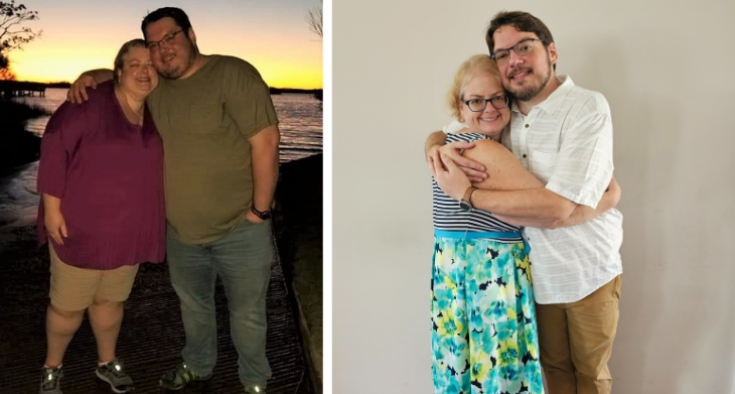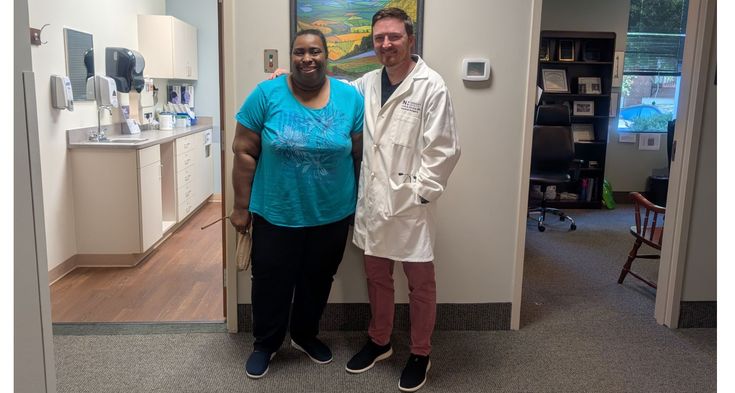When it comes to managing weight and overall health, no single approach is the right fit for everyone.
That’s why the new Novant Health Weight Management & Wellness clinic, located at 1099 Medical Center Drive in Wilmington, is offering both surgical and nonsurgical options as part of a more holistic approach to treating patients living with obesity.
Some qualify for bariatric surgery based on their body mass index (BMI) and lack of success with medical therapy. While surgery can reduce pain and the risk of serious illness down the road, some patients just need a push by addressing their nutrition, exercise and medication.

“We take care of anybody who has concerns about their wellness and weight, regardless of their BMI,” said surgeon Dr. Jayme Stokes, medical director of the bariatric program at Novant Health New Hanover Regional Medical Center. “We’re blessed with a multidisciplinary team that offers patients the best treatment plan tailored to their individual needs.”
In April, the clinic welcomed Dr. Rhonda Mough, Novant Health’s first obesity medicine specialist (also known as a bariatrician); Hillary Kidd, a registered dietitian; and Kim Hardy, a licensed clinical social worker who meets with patients to discuss the mental and emotional components of eating disorders.
Here, Stokes explains his team’s wider approach to personalized treatment for those working to manage their weight and long-term health.
Personalized weight loss programs to help you live a healthier, more active life.
How is the Novant Health Weight Management & Wellness clinic working to customize weight loss for each patient?
Our main focus is weight management, whether that’s surgical or nonsurgical. But the ultimate goal is to improve the patient’s overall health and well-being.
Heart disease, diabetes, pulmonary lung problems and even some cancers are related to weight. Some of our patients require an operation designed for metabolic improvement and weight loss, and some are not candidates for surgery. (Those with a BMI of 35 or greater may qualify.)
Some benefit from focusing on their eating behaviors and by meeting with our licensed clinical social worker. And then there are patients who need to sample from all those specialties in order to achieve their goals. So by bringing these services together under one roof, our team is offering patients everything they need for weight and wellness management.
What are the first steps I can expect when I come to the clinic?
We meet with the patient to discuss their individual needs and help design a treatment plan that’s tailored to them. Patients can either self-refer or be referred by their primary care physician or another specialist.
Because every case is different, we take everything into account: Maybe a patient needs another operation for a hernia, but their weight is interfering with their ability to safely undergo that surgery.
We are reluctant to try and convince patients that they need bariatric surgery. It’s more about exposing them to the different options and what they can provide in terms of results and success.
What’s the best way to broach the topic of weight loss with sensitivity?
Discussing weight with patients can be very intimidating for not only family members, but also for the healthcare team. It’s a difficult conversation to initiate because you don’t know where the patient is emotionally and mentally with their weight and health journey.
Ultimately, we come to a decision with the patient, because the last thing we want to do is convince them to pursue a treatment plan they don’t feel comfortable with.
What are some examples of nonsurgical options for weight loss? Are GLP-1 weight-loss medications available?
The first is committing to making lifestyle changes. For a sedentary patient, that means incorporating some daily activity into their routine. We help them develop a plan that might include something as simple as walking for 30 minutes.
Another nonsurgical option we offer is a registered dietitian, who reviews your daily diet with you.
Our team includes an obesity medicine specialist who can prescribe medicines like Wegovy, Ozempic and Mounjaro. These are highly effective, though not quite as effective as surgery.
At what point is bariatric surgery discussed not as an option but a necessity?
It’s a conversation that can happen in multiple ways. Maybe a patient who’s struggling to get their diabetes under control is on several medications and their blood sugars are still rising. Some patients have to be told, “We’ve tried medication, we’ve tried lifestyle changes, and the next treatment for you is surgery.”
Our procedures are not just weight-loss surgeries; they’re metabolic surgeries. Metabolic surgery has been shown to be a cure for diabetes and has positive impacts on cardiovascular disease. There is weight loss, yes, but more importantly, it’s about how insulin and blood sugars are processed and used in the body, more so than just reducing the volume of food.
How will losing weight under the guidance of doctors be different from dieting on my own?
The accountability piece is a big part of it. Showing up to a visit makes a major impact because it pushes the patient to check in with us and report their activity. Patients want to put in the effort; that way, when they show up, they’ve got the results to show for it. And our team is with them through every step of the weight-management experience.














